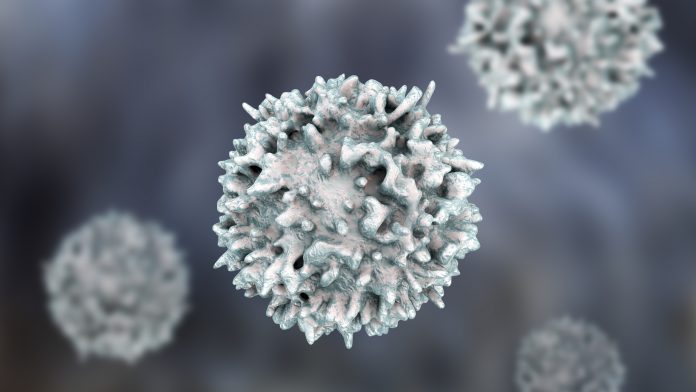
Researchers at Northwestern University have developed a fast and non-invasive method to isolate tumor-reactive lymphocytes from peripheral blood instead of tumor tissue, potentially improving tumor-infiltrating lymphocyte therapy for cancers that are difficult to reach.
Tumor-infiltrating lymphocyte (TIL) therapy is a type of immunotherapy where naturally occurring T cells that have already infiltrated patients’ tumors are harvested, activated and expanded to be re-infused into the patient and destroy the cancer. Most T cells are isolated from tumor tissue. For patients with hard-to-reach tumors this can make or break the treatment.
Reporting in Nature Biomedical Engineering, scientists have identified TIL-like lymphocytes not only in the tumor microenvironment but also in the peripheral blood. Using a method called microfluidic immunomagnetic cell sorting the TILs circulating in the blood of melanoma-models could be isolated non-invasively.
“We started asking questions about whether the immune cells that go into tumors come back out, and if you could find them in the bloodstream,” said Shana O. Kelley, professor of Chemistry and Biomedical Engineering at the Northwestern University and co-author of the study.
“We didn’t know if we’d be able to find them or if we could see enough of them to even study them. Sure enough, they’re in the blood. This is the first time these cells have been studied in this context.”
After identifying TIL-like lymphocytes—or circulating tumor-reactive lymphocytes (cTRLs)— in mice melanoma models, the team assessed their ability to eliminate tumor cells in comparison with TILs in actual tumor tissue and found them to be just as effective. The scientists then identified cTRLs not only in melanoma models but also in colon, lung and breast cancer.
In order to select and replicate only the T cells with the best and most specific anti-tumor activity in the blood, the team developed a novel technology platform that uses microfluidic immunomagnetic cell sorting. This method is based on targeting T cells for selection using antibodies or ligands directed against specific cell surface antigens.
“Engineering-based tools allow you to do things that open up new areas of biology,” Kelley said in a press statement. “We could see using the platform at any major medical center, so you could reach a significant number of patients. The platform we use to capture cells is very fast, which brings the cost down, and medical centers are comfortable handling blood.”
Kelley has started her own health technology startup CTRL Therapeutics, and plans to petition the FDA to move the platform to clinical trials in order to revolutionize the future of TIL-therapy.













